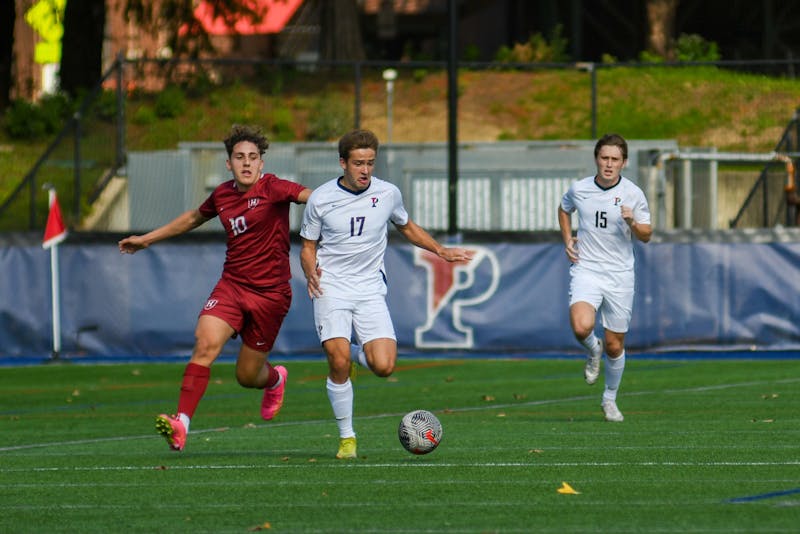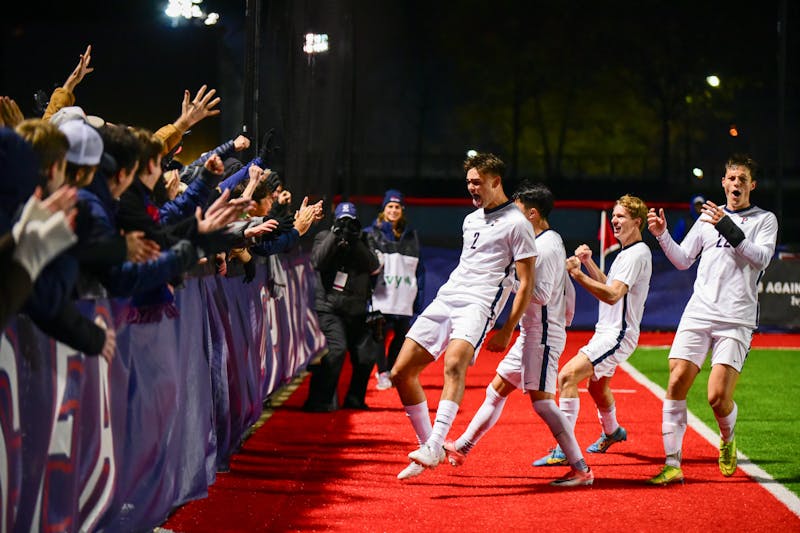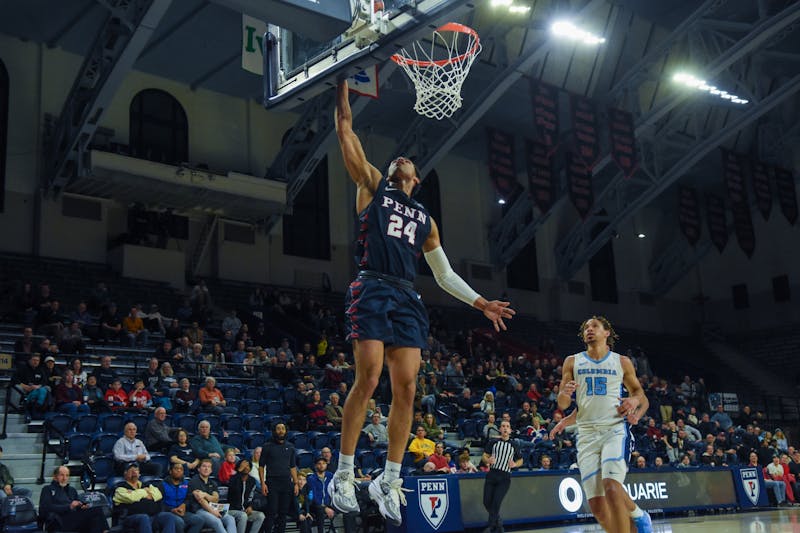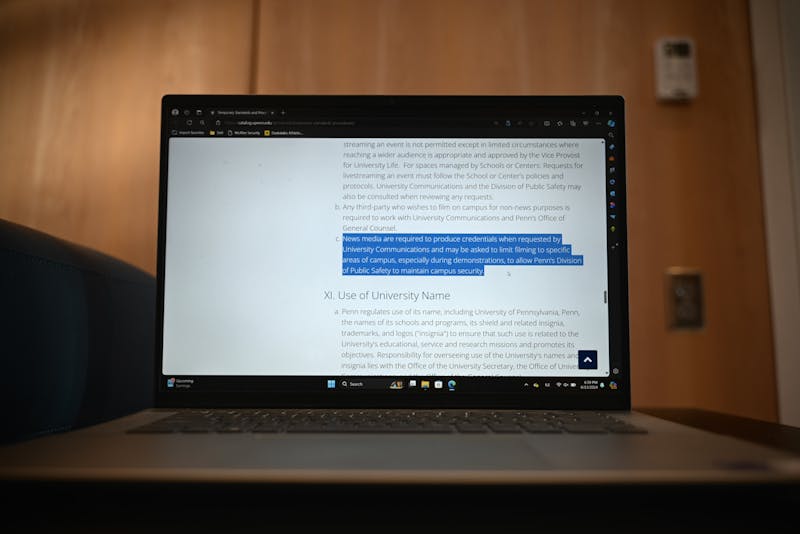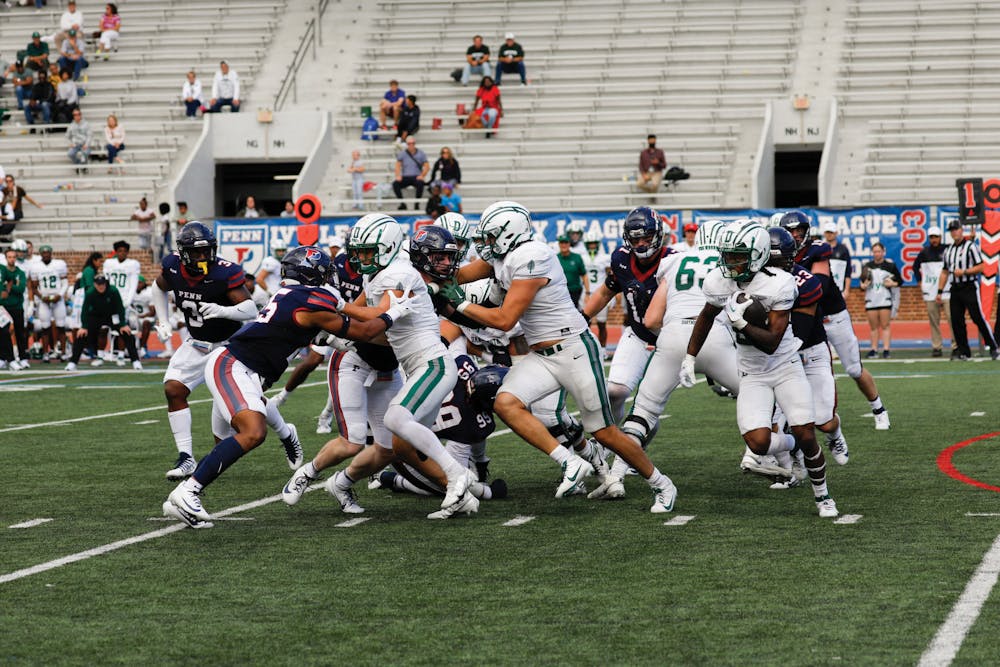
Penn football played Dartmouth at Franklin Field on Sept. 30, 2023.
Credit: Ethan YoungLast Saturday, Aug. 31, marked an unofficial national holiday — one so steeped in American tradition that it may as well appear on the calendar — the first full Saturday of college football. And while football fever swept campuses across the country, eight of the nation’s oldest programs remained dormant.
That is because the Ivy League football season will not kick off until Sept. 21, three full weeks after the majority of Division I teams. This is because Ancient Eight teams play just 10 games per season, less than the 12 or 11 that is standard across much of the FBS and FCS. On a scheduling level, this gives each Ivy League team seven conference games and three non-conference games — nearly 20% less action per season than the average D-I program.
The origin of this gap lies in the roots of the conference’s core values, and its effects ensure that the League remains relegated in the greater scheme of college football.
The Ancient Eight’s 10-game slate goes hand-in-hand with its self-imposed exclusion from the FCS Playoff. The original Ivy Group Agreement of 1945 banned members from playing in “postseason games or any other contests designed to settle sectional or other championships.” Without a chance at postseason play, the conference has no reason to adhere to the FCS standard of playing 11 regular-season games and thus has the freedom to choose a reduced slate for its gridiron athletes.
I posit that these intertwined restrictions are not only unnecessary, but arbitrary. While the conference’s postseason ban is outlined in its founding document, its application has been inconsistent. Ivy League programs compete in a number of postseason competitions, namely men’s and women’s basketball, men’s and women’s lacrosse, and baseball. Moreover, the conference’s participation in these tournaments has been fruitful, with Ivy League teams winning games in each of these tournaments during the last two seasons, namely Princeton men’s basketball’s Sweet 16 run in 2023.
But Ivy League football players are not afforded the same chance, and the conference’s 10-game schedule serves as a two-pronged sabotage. From an objective standpoint, Ancient Eight teams are ineligible for the postseason thanks to their 10-game limit. But from a subjective standpoint, the reduced number of games limits the potential of individual teams to showcase their talent, placing an artificial limit on their poll performance.
The participants of the FCS Playoff are determined by the selection committee, which chooses the 24 best teams in the subdivision. In the last six seasons, six Ivy League teams have been ranked in the top 24 of the end-of-season coaches poll. But the most recent of these placements came in 2021, with the Ancient Eight being left off the list in both 2022 and 2023.
There are a number of factors that could be influencing this decline, namely the conference’s relative lack of adaptation to the growing relevance of name, image, and likeness opportunities. But it’s also important to acknowledge the limits the conference is placing on itself — fewer games equal fewer chances to earn quality wins, hindering the Ivy League’s resume-building potential. Without a conference championship game, the League cannot qualify for an automatic bid as 10 other FCS conferences do. In many ways, the Ancient Eight is competing on an entirely different playing field.
To this point, the Ivy League has not indicated any intention to change its ways. But as the conference’s other founding principles have come under fire, one might argue that the conference is nearing an inflection point — one where it will be forced to adapt in order to survive.
If that is so, an ideal first step would be for the conference to give its teams enough opportunities to reach the goal line.
WALKER CARNATHAN is a junior and current DP Sports Editor studying English and Cinema and Media Studies from Harrisburg, Pa. All comments should be directed to dpsports@thedp.com.
The Daily Pennsylvanian is an independent, student-run newspaper. Please consider making a donation to support the coverage that shapes the University. Your generosity ensures a future of strong journalism at Penn.
Donate







